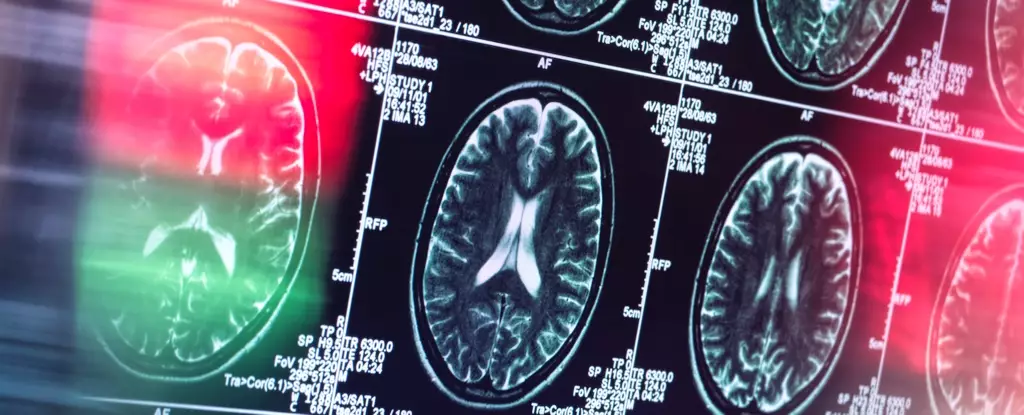For decades, Alzheimer’s disease research has been dominated by one prevailing hypothesis: the beta-amyloid protein, which accumulates abnormally in the brain, is the primary culprit behind the devastating cognitive decline associated with this disease. Pharmaceutical efforts have largely focused on clearing these protein clumps, often at great financial and emotional cost. However, this narrow approach has repeatedly failed to deliver effective treatments, leading to a mounting sense of frustration within the scientific community and among millions of patients and their families.
The fervent focus on beta-amyloid reached a controversial peak recently when questions arose about the integrity of foundational research that positioned this protein as the central villain. If the data underlying this paradigm were flawed or even fabricated, it underscores the urgency for a radical re-evaluation of Alzheimer’s pathology. Continuing to chase the same protein-focused strategy without critical reassessment risks not only prolonging the suffering of millions but also diverting valuable resources away from more promising avenues.
Alzheimer’s as an Autoimmune Disease: A Paradigm Shift
It is time to consider a more holistic view of Alzheimer’s—one that frames it not simply as a disease caused by rogue proteins but rather as a complex dysfunction of the brain’s immune system. Immune responses are fundamental to human health, orchestrating the repair of injuries and defense against pathogens across the entire body, including the brain. When this balance is disrupted, the immune system may mistakenly target the body’s own tissues, resulting in autoimmune diseases.
Applying this model to Alzheimer’s opens up a new frontier. Beta-amyloid, often vilified as toxic, may in fact be a normal and essential component of the brain’s immune defense. It is designed to respond vigorously to threats such as infections or trauma. The problem arises when beta-amyloid cannot differentiate between harmful invaders and the brain’s own cells, initiating an inflammatory assault that progressively destroys neurons. This misdirected attack paints Alzheimer’s as an autoimmune condition—a brain caught in a tragic case of friendly fire.
Why Previous Treatments Have Fallen Short
Recognizing Alzheimer’s as an autoimmune disease also sheds light on why attempts to combat it with classical treatments have stumbled. Autoimmune diseases like rheumatoid arthritis respond to specific immune-modulating drugs, often steroid-based. But the brain’s unique architecture and immune environment complicate the application of these same strategies to Alzheimer’s. It is not merely about suppressing inflammation globally but about recalibrating a delicate immune system that has gone awry in a specialized organ.
Thus, rather than aiming solely to clear beta-amyloid plaques, the future of Alzheimer’s therapy may lie in modulating the brain’s immune pathways to prevent this self-destructive cycle. Such an approach demands the development of novel treatments targeted at these immune mechanisms, which traditional pharmaceutical pipelines have largely ignored.
Emerging Theories and Multidimensional Research Paths
The immune system perspective is part of a broader shift towards considering Alzheimer’s disease as a multifactorial syndrome, influenced by a variety of biological systems. Some researchers advocate investigating mitochondrial dysfunction, where the cell’s energy producers fail to sustain healthy brain activity. Others propose that chronic infections, particularly bacteria originating from the oral cavity, could trigger inflammatory responses that tip the immune system into overdrive. There are also insights into metal imbalances involving elements like iron, copper, and zinc that may contribute to the disease’s progression.
This diversified conceptual framework broadens the horizon of Alzheimer’s research from a myopic proteinopathy to an integrative challenge requiring balanced scrutiny of the immune system, metabolism, infectious agents, and biochemical homeostasis within the brain.
The Weight of an Urgent Public Health Crisis
More than 50 million people worldwide are living with dementia, with Alzheimer’s disease being the most common and devastating form. The consequences extend well beyond individual health, reverberating through families who witness the gradual erasure of loved ones and straining healthcare infrastructures already under pressure.
Given the exponential increase in dementia cases—one new diagnosis every few seconds—the stakes could not be higher. The global burden demands a paradigm shift away from the entrenched beta-amyloid model towards innovative strategies that consider Alzheimer’s as an immune-related disorder. This new perspective not only holds promise for uncovering effective treatments but also reframes the disease in a way that could reduce stigma and foster hope.
—
The call to action is clear. As research pushes forward, embracing immune-centered theories could galvanize breakthroughs long overdue, unlocking therapies that protect and preserve the brain’s intricate functions rather than attacking isolated symptoms. It’s time for science to courageously step beyond the limits of past dogma and confront Alzheimer’s disease with the full arsenal of contemporary biomedical insight. Only then will we have a fighting chance of truly altering the course of this cruel and relentless illness.

